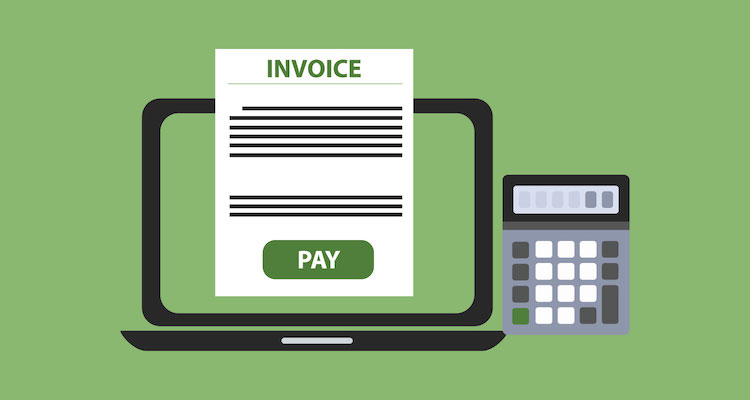Let’s be honest.
Asking clients to pay up on invoices can be awkward even when the payment is late and you have every right to apply some pressure.
On the one hand, you upheld your part of the agreement by doing the work. It only makes sense that you should be serious about receiving your money.
But on the other hand, you don’t want to be so pushy about getting paid that you damage the relationship with your client.
The bottom line is, you deserve to be paid for your work whether the client is having a cash flow issue or they’ve lost your invoice in a cluttered email inbox.
Here are a few tips on how to collect money without being too aggressive or sounding desperate.
Table of Contents
ToggleAsk Other Questions Before Flexing Your Muscles
Instead of assuming the worst — that the client is not paying you on purpose — consider other variables that could be causing them to pay late before shooting off aggressive reminder emails.
Maybe your invoice is in their spam folder.
Maybe they have a question about the invoice that they haven’t had a chance to ask.
Maybe the invoice is being bounced around to multiple stakeholders for approval before it can be paid.
Your first move on an unpaid invoice is simply asking why they haven’t paid it yet since there can be a plethora of reasons for a delay.
This first bit of communication serves as a legitimate question you need an answer to and a gentle reminder if they happened to have forgotten about the invoice.
Work with the client to resolve a dispute if there is one. Then always request a timeline after getting a response.
When you follow up based on their timeline it feels less like you’re being a nuisance because you’re following up according to the timetable they gave you.
Get Contact Information for the Right Department
Your main point of contact within a business may not be the one who pays invoices. Learn who the person is who pays invoices so you can get friendly with them.
It’s always more productive to communicate directly with the accounting department instead of having your message go through multiple people before even reaching the bill payer.
I’ve had several experiences where a point of contact did not give an invoice to the bill payer, which was the reason for the payment delay.
In one specific situation, my point of contact was the director of marketing. She worked from the field and didn’t have frequent access to email. The reason for the late payment was purely logistics and not bad intent.
I got the office manager’s email instead. When I started going straight to her for invoice questions the invoices started getting paid faster.
Follow Up the Old School Way
There’s a chance that you’ve never talked to your clients on the phone if you run an online business. And if you do happen to talk to your clients on the phone you may only use this form of communication once every blue moon.
Sending automated invoices and reminders through email is an excellent way to save time and to streamline your bookkeeping process. But it’s a good idea to escalate your communication to the telephone when it’s time to put money in the bank.
Phone calls are less easy to overlook mistakenly (or ignore on purpose) than emails.
A phone call also gives the impression that you mean business and can get you paid faster.
Cut the Client Off of the Gravy Train
You need to think about putting the kibosh on a situation where a client gives you ongoing projects without paying you on time.
Think about it — What’s lighting a fire under them to pay when you continue providing a service or product regardless?
The reason I say “think about” this is because cutting off your client may or may not be possible depending on your situation and payment agreement. Take a second to go back and review your business agreements to see what leverage you have.
I put in my freelance writing contract that I will not start working on new projects until I get paid for past work. This is a contract term that I have in there for security.
However, it’s something I only enforce when I start noticing that I have to ask a client multiple times to pay an invoice.
How to Ask Clients to Pay an Invoice for Ongoing Work
My method is acknowledging receipt of a new assignment when a late paying client tries to give me the project. But I’ll also let them know I won’t be able to start working on it until I get money.
Instead of making you sound desperate this shows you have confidence that your abilities are worth compensation, and you need that compensation now.
I learned this approach from Carrie Smith of Careful Cents after getting burned when I first started freelancing. It’s been a lifesaver.
One of my very first freelance clients ever asked me to provide weekly articles for their business. I decided to continue writing even when payments were late trusting that they were on the way.
Long story short — payments were not on the way.
Before I knew it there was a backlog of numerous unpaid assignments.
Don’t make the same mistake. Draw a line in the sand before you end up doing work for free.
[Related: When Should You Ask the Client to Pay?]
Final Thought
Be open to accepting multiple methods of payment.
Taking credit cards is something you can bring up when you ask the client why an invoice hasn’t been paid. Their response may be that they need a more convenient payment option and accepting credit cards can help you there.
Credit card payments usually have processing fees, but it’s better than not getting money at all.
In closing, following up on an invoice repetitively can feel desperate at first.
But take the feelings out of the equation and think logically:
Shouldn’t all parties involved expect that you want to be paid for your time?
You’re not following up on invoices out of desperation; rather you deserve to get your hands on money that someone owes you.













